Family Therapy for Depression in California with The Cave Clinical Services
Depression impacts more than just the individual, it affects families, relationships, and entire households. For many Californians, seeking effective treatment involves more than medication or individual counseling. Family therapy for depression in California is a proven approach that addresses the relational dynamics contributing to mental health struggles, fostering healing not only for the individual but also for their loved ones.
At The Cave Clinical Services, we understand that mental health thrives in supportive environments. Our professional therapists offer evidence-based family therapy designed to help individuals and families cope with depression, rebuild trust, and strengthen emotional bonds. This blog explores how family therapy works, the techniques used, its benefits, and why it’s becoming an essential part of depression care in California.
Understanding the Role of Family Therapy in Depression Treatment
Family therapy recognizes that mental health is influenced by relationships. By involving family members, therapy addresses communication patterns, support systems, and the role of family dynamics in both triggering and alleviating depression.
Depression as a Family Concern
Depression doesn’t happen in isolation. A loved one’s struggle often leads to misunderstandings, conflict, or emotional withdrawal, impacting everyone in the home.
Shifting the Focus from Individual to Collective Healing
While individual therapy centers on personal experiences, family therapy emphasizes collective healing, improving understanding, empathy, and support among family members.
Why California Families Benefit From This Approach
Given California’s diverse communities and high levels of stress in urban and suburban lifestyles, family therapy provides culturally sensitive support tailored to unique family dynamics.
Evidence-Based Techniques Used in Family Therapy for Depression
Effective family therapy relies on well-established therapeutic models. At The Cave Clinical Services, we use approaches that blend research-based methods with practical strategies for families.
Structural Family Therapy
This method examines how family structures, roles, and hierarchies influence interactions. By redefining roles, families can build healthier communication.
Cognitive-Behavioral Family Therapy (CBFT)
CBFT integrates cognitive-behavioral principles, teaching families to identify negative thought patterns and replace them with supportive communication.
Systemic Family Therapy
Systemic therapy focuses on how each family member’s behavior affects the group. It helps families break cycles that perpetuate depression.
Psychoeducation and Skills Training
Educating families about depression reduces stigma and equips them with tools to support their loved one more effectively.
The Benefits of Family Therapy for Depression in California
Strengthened Communication
Families learn to communicate more openly, reducing misunderstandings and emotional distance.
Improved Support Networks
By fostering empathy and collaboration, therapy builds stronger support systems for individuals battling depression.
Reduced Conflict and Tension
Therapy provides strategies for conflict resolution, easing household stress and creating a healthier environment.
Enhanced Treatment Outcomes
Studies show that individuals with depression recover more effectively when family members are engaged in therapy.
What to Expect in Family Therapy Sessions
At The Cave Clinical Services, we tailor therapy sessions to meet the unique needs of each family.
Initial Assessment and Goal Setting
Therapists evaluate family dynamics, listen to concerns, and set achievable goals for progress.
Collaborative Session Structure
Sessions may involve joint discussions, role-playing exercises, or individual reflection within the group setting.
Homework and Practice Outside Sessions
Families are often given tools and communication exercises to practice at home, reinforcing skills learned in therapy.
Regular Progress Reviews
Therapists track progress, adjusting strategies as needed to ensure continuous improvement.
The Cave Clinical Services: Expert Family Therapy in California
Choosing the right provider makes a significant difference. The Cave Clinical Services stands out for expertise, compassion, and commitment to client well-being.
Licensed and Experienced Therapists
Our therapists are trained in multiple evidence-based approaches, ensuring care that is both professional and empathetic.
Personalized, Culturally Sensitive Care
California families come from diverse backgrounds, and our therapy acknowledges and respects cultural values in treatment.
Holistic Mental Health Support
We don’t just focus on depression, we look at overall well-being, including stress, anxiety, and relationship health.
Proven Track Record of Success
Families across California trust The Cave Clinical Services for long-term improvements in communication, resilience, and emotional well-being.
When Should Families Consider Therapy for Depression?
Recognizing when to seek professional help is critical.
Persistent Symptoms of Depression
If a loved one experiences ongoing sadness, withdrawal, or hopelessness, family therapy can provide vital support.
Increased Conflict at Home
Frequent arguments or lack of communication may indicate that family relationships need professional guidance.
Caregiver Burnout or Strain
When supporting a family member feels overwhelming, therapy helps redistribute emotional responsibilities.
Struggles in Adapting to Life Changes
Major transitions—such as divorce, relocation, or loss—can worsen depression and strain family bonds.
Addressing Stigma Around Mental Health in California Families
Stigma often prevents families from seeking help. By normalizing therapy, families can break barriers to treatment.
Overcoming Cultural Misconceptions
Some families may view depression as a weakness. Therapy provides education to reframe mental health as a medical condition.
Promoting Openness in Communication
Sessions encourage honest dialogue, allowing families to voice concerns without fear of judgment.
Building a Culture of Mental Health Awareness
California’s mental health advocacy environment helps families embrace therapy as a proactive step toward wellness.
Integrating Family Therapy with Other Treatments for Depression
Family therapy often works best when combined with other therapeutic strategies.
Medication and Psychiatric Support
In cases where medication is necessary, family therapy ensures loved ones understand treatment goals and side effects.
Individual Therapy
Pairing family and individual therapy allows patients to address personal issues while reinforcing progress within the family unit.
Lifestyle and Wellness Approaches
Encouraging healthy routines, such as exercise, nutrition, and mindfulness, supports depression recovery holistically.
Why Family Therapy Is the Future of Depression Care in California
As mental health awareness grows, family therapy is becoming a cornerstone of effective depression care in California. By addressing not just the symptoms but also the environment, families and individuals alike experience more sustainable recovery.
Final Thoughts:
Depression is challenging, but no one has to face it alone. Family therapy offers an evidence-based, compassionate approach that supports both individuals and their loved ones. In California, The Cave Clinical Services is dedicated to helping families navigate depression with care, expertise, and a commitment to lasting wellness.

